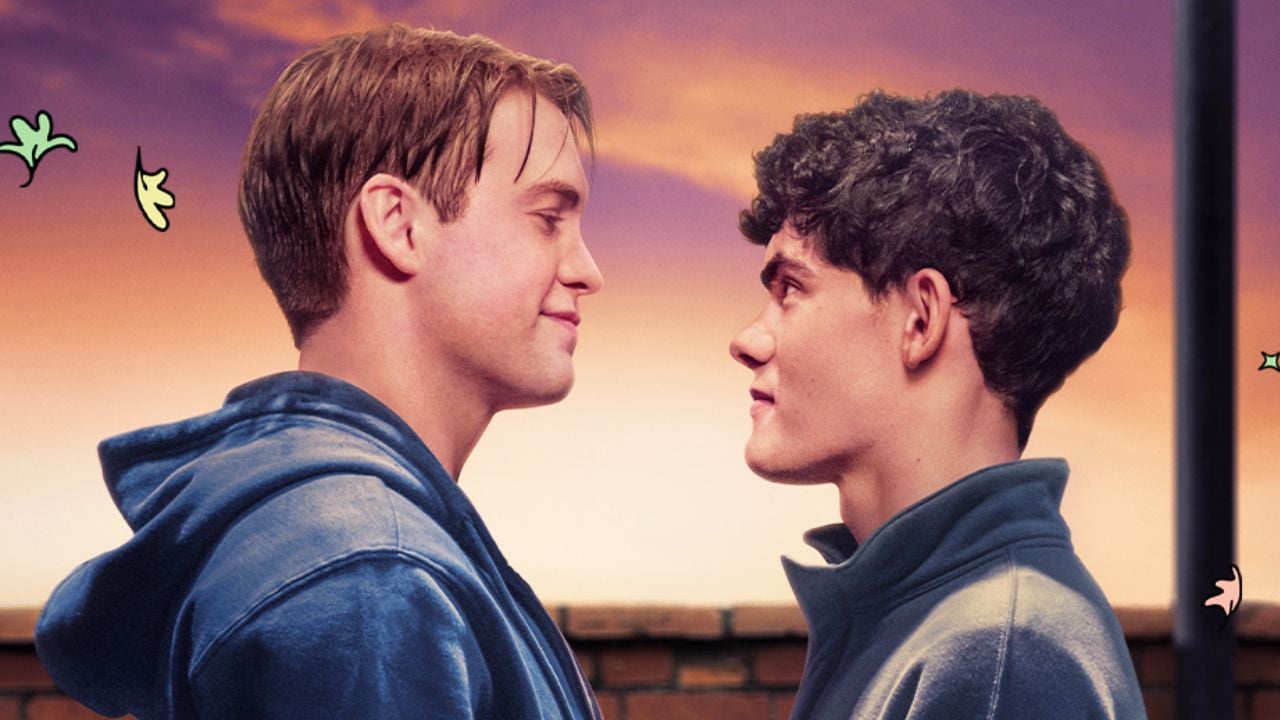Rolling Stone Brazil talked to Jorge Bodanzky and Edna de Cassia, star of the feature, which was censored by the military dictatorship in the 1970s
Fifty years after its production, IRACEMA – A FLASH AMAZONICfrom Jorge Bodanzkyreturns to theaters from July 24 and remains one of the most provocative and relevant films of Brazilian cinema.
In a frank conversation with the Rolling Stone Brazil, Bodanzky and the actress EDNA DE CASSIAwho lives the character IracemaRemember the backstage of production, talk about the controversies involving the nudity scenes, the challenges of the military dictatorship and the impressive today of the film. Check it out:
Controversy on nudity
Over the years, IRACEMA – A FLASH AMAZONIC He was the target of discussions about the representation of the female body, especially for having as a protagonist a non-actor, then 15 years old. Questioned about criticism of the nudity scenes of Edna, Bodanzky It is direct:
At the time there were no criticism. The film was censored in Brazil. In Europe and Cannes this has not caused strangeness. Nudity there is not free, it is organic. She is part of the scene, the context. I have never seen someone reacting negatively during an exhibition.”
Edna confirm: “As we were only among women, it was as if we were changing to leave. No problem.”For her, the environment was respectful:“THE Conception [Senna]from the team, was responsible for me. My mother handed her to her like a second mother. There has never been any kind of disrespect for me.”

The search for Iracema
Bodanzky reveals that the choice of Edna For the paper came after a long search. The character needed to be very young and have Amazonian features. “I couldn’t put a girl with southern face in the middle of the Amazon”, He explains. The final team happened by chance, in an auditorium program in Belém:“I saw those black eyes in the background and said: ‘This is the Iracema‘”.
EdnaThen a teenager had never gone to the movies. “Suddenly I was called to make a movie. I talked to my mother and brother, who was my guardian. Everything was done within the law. After that, we went to the fight“, remember.
Cinema under surveillance
Rotated during the military dictatorship, Iracema faced constant risks. “The Amazon was a national security area. We entered there with a certain naivete. It was a van with few people, always stopped by military barriers. There was a risk of losing all the equipment“, account Bodanzky. “But we had experience with hostile environments. We recorded fast and left before they realized.”
In addition, the movie was mostly improvised. Although there was a script – a requirement for approval with the TV show that funded the project – it was just a compass. “We provoked the situation and let it roll. With non-actors, repeat a scene spoils everything.”

FILMING PRISON
One of the most striking passages of the interview was the memory of when Edna He was arrested during filming in Belém. When participating in a scene in the Círio de Nazaré, she was intercepted by the Court of Minors, even with all the regularized documentation. “They arrested me, even with everything legalized. I was only released after we showed the documents“, remember.
Affection and authenticity
Despite the tensions, the filming was marked by complicity and care. Edna remembers in good mood your coexistence with the actor Paulo César Pereio, protagonist of the movie next to her.
I cursed him with taste! But it was my way, I smoked, had beer. It was a crazy kid.I always say that I entered and left the movie like a soda can … sealed!”

Assembly and Restoration Process
The film was mounted in Germany by Bodanzky With a publisher that did not speak Portuguese, but had a unique sensitivity. “She riding just listening to the tone of the voices, the rhythm. And got it right“, it says Bodanzky.
The soundtrack was also improvised: Brazilian records were taken in the suitcase, and popular songs were overlapping to the scenes already recorded. “The song that appears in the scenes is not the one that was actually playing – it was placed later. But it seems that it was born next to the image.”
Thanks to a thorough restoration process led by Alice Andrade “With materials found in Germany,” the film has returned to renewed -looking screens. “It looks like it was run today”, Says the director.
Edna did not hide the emotion when seeing Iracema Restored for the first time. “It seems that it was done today, with today’s modern equipment. I thought it was very good indeed”He says, surprised by the quality of the new version.
Bodanzky Details the process: The restoration came from the original negative preserved in Germany, where the film was set up. According to him, technical care rescued the visual strength of the work and returned to the audience a movie “as if it were being released now”.
Pereio did not know how to drive truck
Paulo César Pereio He played the role of a trucker, but revealed to the director, already during the filming, that he could not drive. “I saw him stopped and fAlei: ‘Pereio, play the truck!’ And he: ‘I have to tell you something. I don’t know how to guide it. ‘”
The solution was to use the true truck owner for all moving scenes. “He was only in the stopped scenes. I was wrong. He said to me, ‘If I had told, you wouldn’t hire me’”, Remember Bodanzkylaughing.

Derivative shorts
Bodanzky He took the opportunity to talk about two complementary shorts. One of them, Once upon a time Iracema (2005), it works as a Making of with backstage and testimonials from the team. The other, Even once Iracema (2014), presents the reactions of prostitutes from Belém when seeing the film. “It is their point of view: how they saw this story, which has changed, which remains the same. It was a very powerful return”Explained the director.
In the short Once upon a time Iracema, Edna It appears saying that I did not like to be identified as indigenous. When asked about this today, she reveals a change in perspective: “Nowadays, the time has passed. I matured. I understood things more. Today is all good.”In the same short, Pere It mentions that the German team would have been “xenophobic.” Bodanzky refutes: “He invented that on time.”
An accidental (and unlikely) success
The director confesses that he never expected the film to become a milestone. “It was made for an experimental TV channel in Germany. Like a reporter globe, no cinema”He said. What changed everything was a brightness that prevented the screening of a football match there in Germany, and Iracema was displayed in place.
The unexpected audience caught the attention of European criticism, and soon the film was in the hands of Jean Rouchwhich indicated him for the Cannes Film Festival. From there, the film’s trajectory changed completely.
Life after the movie
Even though it has starred in one of the most iconic films of Brazilian cinema, Edna He claims he preferred to go on a life away from the spotlight. “I want to be the way I really live. I don’t want anyone behind me calling me to this or for that.”Nowadays, it returns only out of respect for commitment to Iracema. “As I already made that commitment back there, I will have to follow. How long? I don’t know.”
A Brazil that has not changed
Fifty years later, Iracema remains frighteningly current. “All the problems that the film shows continue: slave labor, prostitution, burning, grabbing, violence against women and the squatters. Everything is there, maybe even worse. This is the sad reality of this movie“, it says Bodanzky.
Also read:The 12 best Brazilian films of 2025 so far, according to Rolling Stone
What was the best movie of 2025 so far? Vote for your favorite!
- Anora
- Conclave
- Flower
- The brutalist
- Mickey 17
- Victory
- Sinners
- Thunderbolts*
- Man with h
- Karate Kid: Legends
- Premonition 6: Blood Ties
- Mission: Impossible – The Final Set
- How to train your dragon
- Extermination: Evolution
- F1: The Movie
- JURASSIC WORLD: restart
- Superman
- I know what you did last summer
- CAZUZA, GOOD NEW
- Cloud – Cloud of Revenge
Source: Rollingstone
Rose James is a Gossipify movie and series reviewer known for her in-depth analysis and unique perspective on the latest releases. With a background in film studies, she provides engaging and informative reviews, and keeps readers up to date with industry trends and emerging talents.




![Such an excellent sun in advance: Summary of Wednesday Episode of July 30, 2025 [SPOILERS] Such an excellent sun in advance: Summary of Wednesday Episode of July 30, 2025 [SPOILERS]](https://fr.web.img4.acsta.net/img/39/e2/39e2e874d72fc028bb7104e23b002c8d.jpg)


